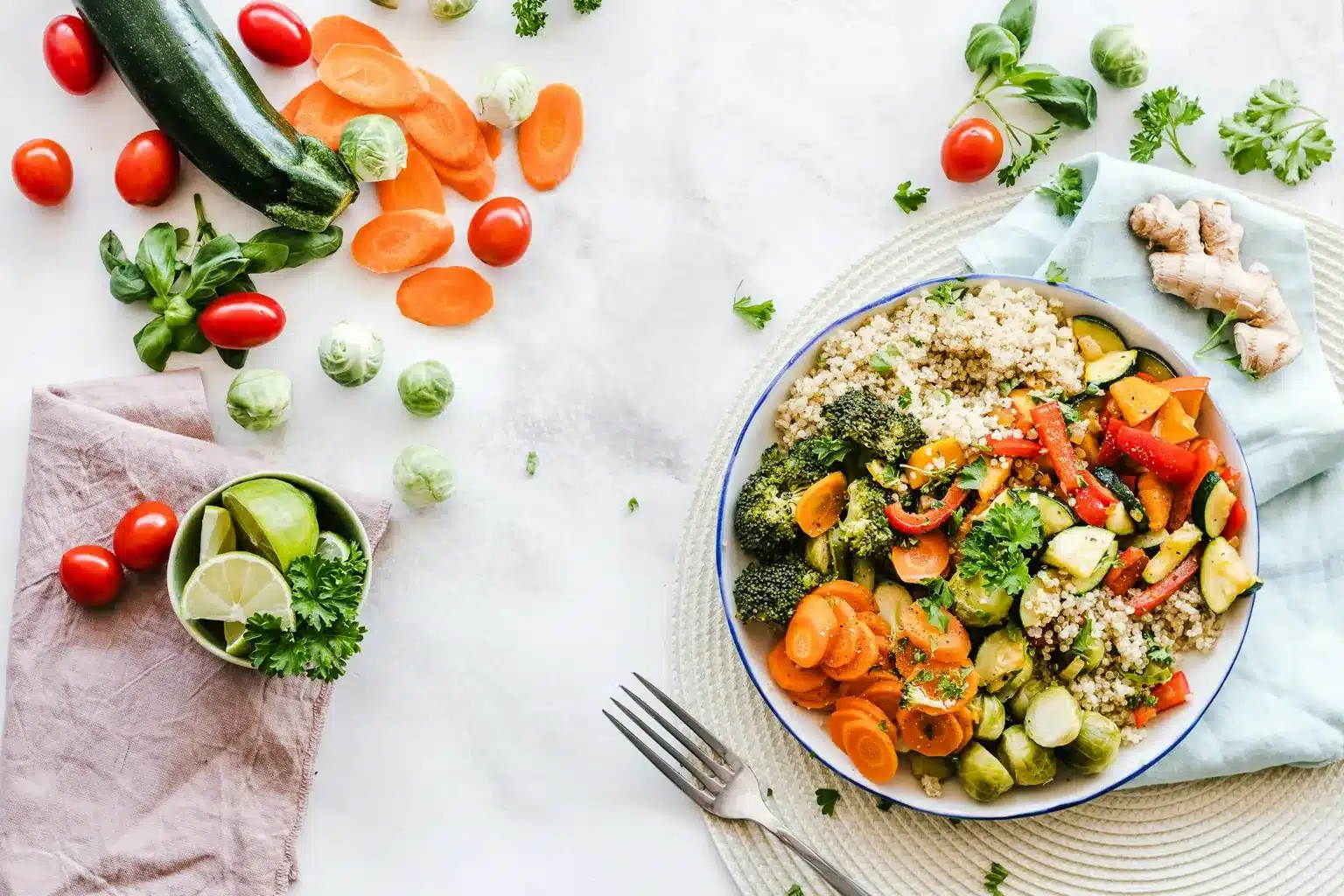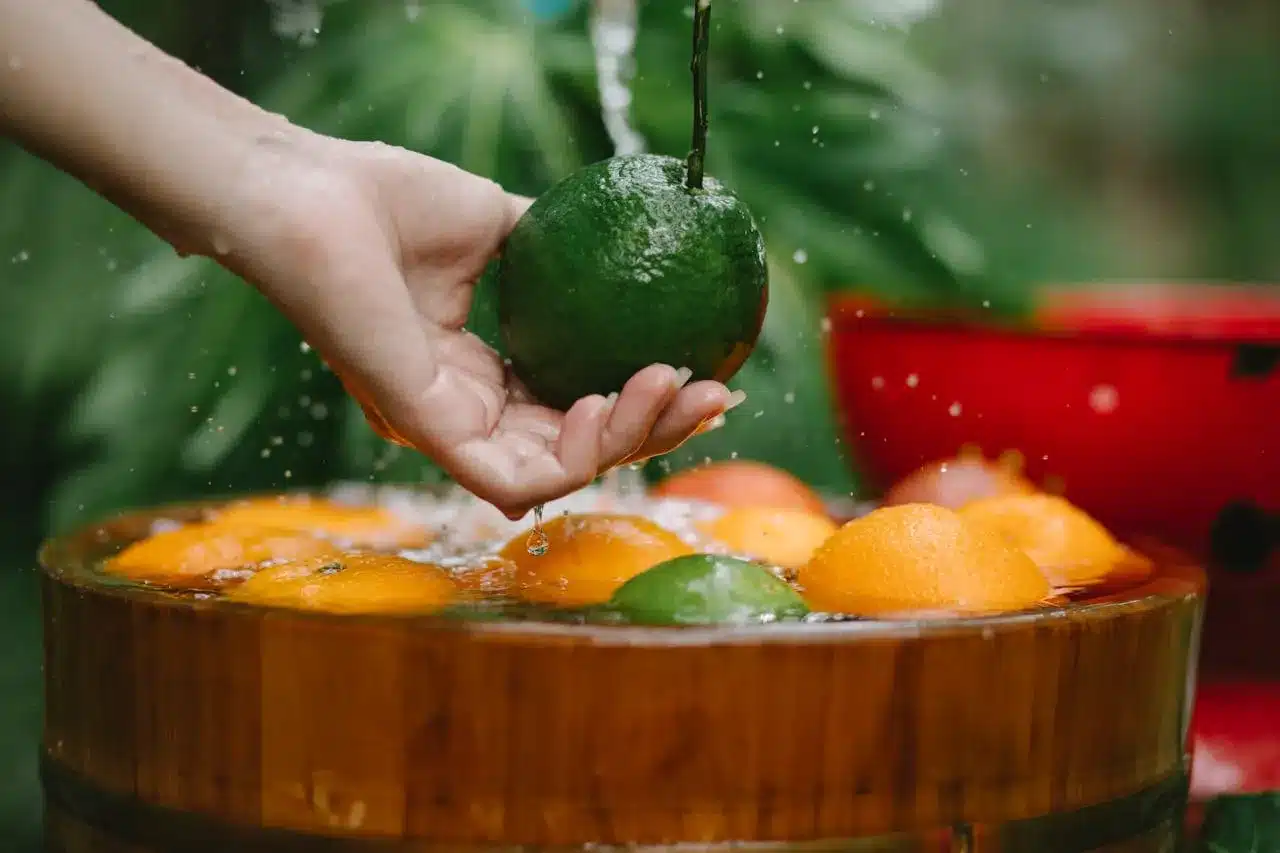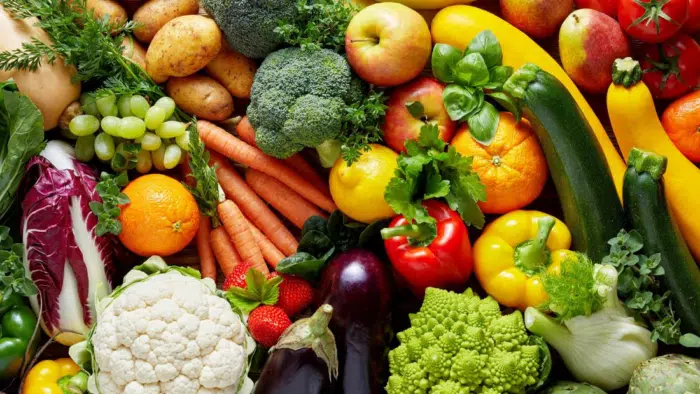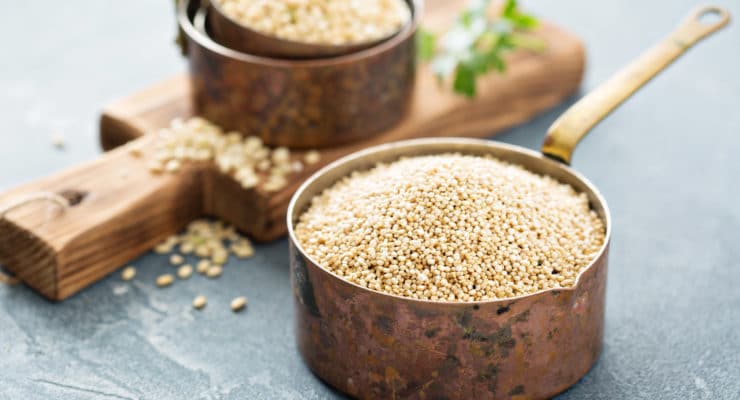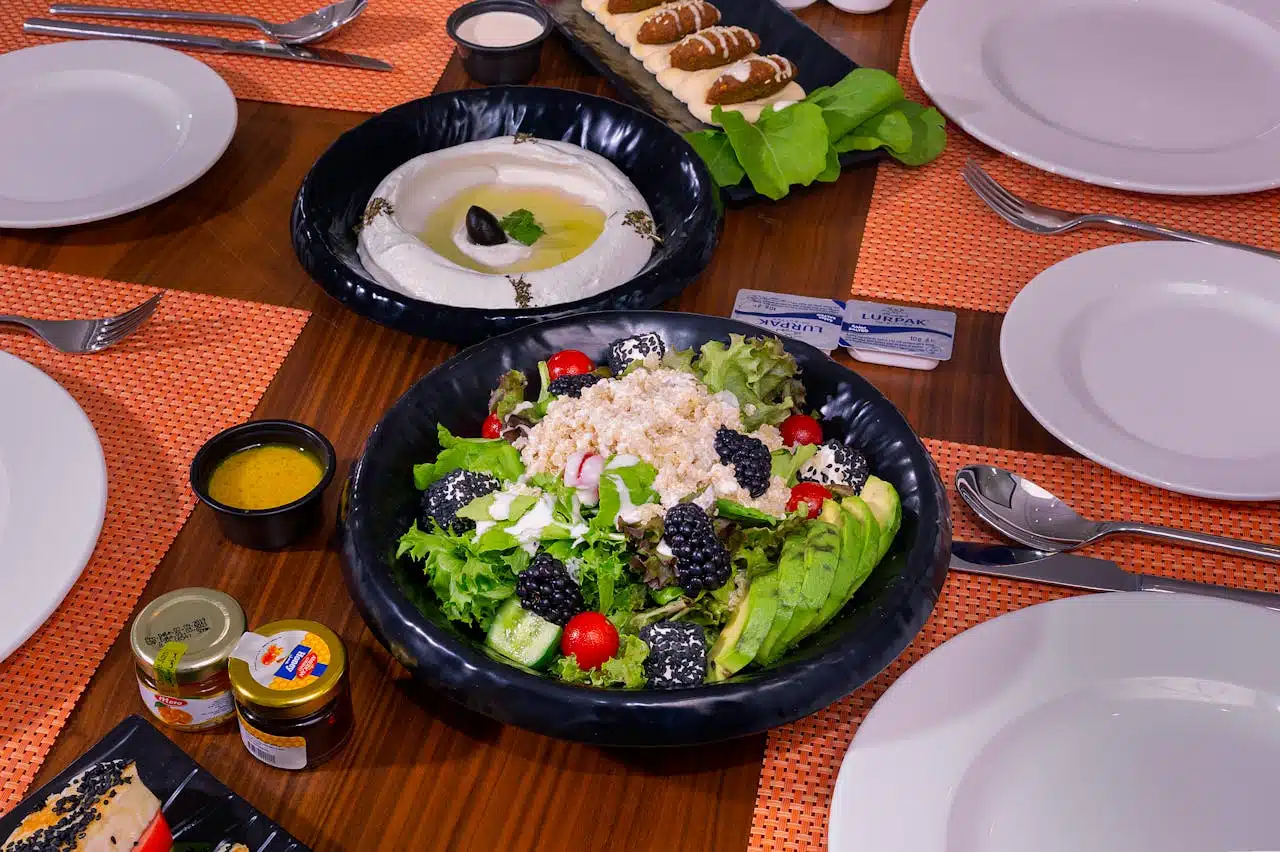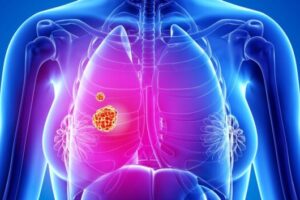Fruits and vegetables are the perfect antidote to the destructive effects of cancer. The American Cancer Society reports that cancer is the number one killer in the U.S., accounting for 25% of all cancer-related deaths.
A healthy diet that includes plenty of fruits, veggies, legumes, and whole grains can help reduce your risk of cancer. Studies show that if you eat more of the good foods and less of the bad ones, your chances of getting cancer will be 30% lower.
Diet is also important when it comes to fighting cancer. Some compounds in foods can both prevent cancer and help fight it on a cellular level. According to research, eating 5 servings of fruits and veggies a day will reduce cancer-related deaths by 35%. One study found that eating a diet high in fruits and vegetables halves the risk of getting pancreatic cancer, a particularly deadly cancer.
In recent years, scientists have discovered why plant foods offer so much protection against cancer. Certain compounds only found in plant foods, called phytonutrients, (derived from the Greek word phyto meaning plant) could stop cancer.
Fruits.
Research has proved that eating just one serving of watermelon or pink grapefruit a day is. It can reduce a man’s risk of developing prostate cancer by 82%! Watermelon and pink grapefruit are high in a phytonutrient called lycopene.
In fact, watermelon contains about 40% more lycopene than fresh tomatoes – the vegetable most people probably think of when they think of lycopene.
When processed into a sauce. Juice or ketchup, however, tomatoes do yield more usable lycopene. Interestingly, a recent study found that organic ketchup; has up to three times more lycopene than ordinary kinds.
Probably because organic ketchup is made with riper tomatoes than other types of ketchup. The darker red the ketchup is the greater its lycopene content.
The Power of Antioxidants Every day,
Your body is under the attack of free radicals, harmful molecules that have lost an electron. Nature anticipated this damaging threat by packing fruits; vegetables, and other foods with antioxidants.
Protective compounds that either stop or disable the formation of free radicals before they have a chance to do harm.
Besides the many compounds in foods that act as antioxidants in the body. Two particularly powerful and best studied are beta-carotene and vitamin C.
Beta-carotene is the pigment that gives many fruits and vegetables their lush, deep orange-to-red hues. However, it’s more than nature’s palette.
Beta-carotene has been shown to stimulate the release of natural killer cells, which hunt down and destroy cancer cells before they can cause damage.
You don’t need a lot of beta-carotene to get the benefits.
Research recommends getting 15 to 30 mg/day; the amount provided by one or two large carrots is probably all it takes. Cantaloupes, sweet potatoes, spinach, and Pop-Choy are all excellent choices for beta-carotene.
Another antioxidant, vitamin C, has been shown to help to prevent the formation of cancer-causing compounds; in the digestive tract. The Daily Value for vitamin C is 60 mg, which is very easy to get from foods.
Beans as a cancer fighter Beans are high in magnesium and can reduce the formation of colon cancer by 23%. Only a half cup of beans provides 43 mg of magnesium, which is almost 11% of the Daily Value of 400mg.
Beans also protect against breast cancer.
A study conducted by the Harvard School of Public Health. Found that women who ate beans twice a week had a 24% lower risk of developing breast cancer than women who seldom ate them.
Drink red wine as protection According to a study of more than 3,400 men by the Fred Hutchinson Cancer Research Center in Seattle. Drinking a 4-ounce glass of red wine a day may cut a man’s risk of prostate cancer in half.
Which wine is best? Researchers at the University of Mississippi. Tested 11 different types of red wine and found Pinot Noir from California. It has the most resveratrol, an antioxidant that can help ward off cancer and even heart attacks.
Tea is the second most popular beverage.
It has recently been shown to fight cancer. A Swedish study of 61,000 women found that those who drank 2 cups of tea a day lowered their risk of ovarian cancer by 46%.
Researchers examined 63 studies and revealed that milk has high levels of vitamin D and cuts the risk to the colon. Ovarian and breast cancer by up to 50%. Researchers recommend getting 1000 IU of vitamin D per day. One cup of milk contains 100 IU of vitamin D.
Fiber against cancer Fiber is not a nutrient and has not been taken seriously for a long time. As it turned out, fiber does more than anyone ever imagined.
Consuming a high-fiber diet is essential for reducing the risk of certain types of cancer, particularly colon cancer. Fiber works against cancer in several ways.
Since fiber is absorbent, it soaks up water as it moves through the digestive tract. This makes stools larger. The more quickly stools move, the less time there is for any harmful substances they contain to damage the cells lining the intestine. Also, fiber helps trap cancer-causing substances in the colon.
If you pick the right foods, Beans and certain vegetables are the best sources of fiber.
A half-cup of kidney beans contains 7 grams of fiber, and the same amount of chickpeas contains 5 grams. Whole grains are also good sources of fiber.
Deficiency Diseases
In today’s world, we don’t see a lot of full-blown deficiency diseases. Although deficiency diseases are rare in developed countries, they may still occur. However, we do see subclinical or low-level deficiency diseases.
People with digestive disorders may not get all the nutrients they need. People who abuse alcohol are particularly prone to deficiency diseases; as are those who live in poverty. They regularly occur in many parts of developing countries.
You can also have, what’s called localized tissue deficiencies. That means you might have enough of a nutrient in your blood. But you might not have enough in specific tissues, such as your lungs or cervix. This puts you at risk for lung cancer and cervical cancer, respectively, and you’d never even know it!
Rickets.
Rickets is a bone-softening disease that occurs when the body doesn’t get enough vitamin D. Vitamin D is essential to transport calcium and phosphorous into the bones to prevent your bones are getting soft. Vitamin D deficiency is now recognized as an epidemic in the USA.
In children, it can cause growth retardation. In adults, it causes a painful bone disease, called Osteomalacia. It also causes muscle weakness, type 1 diabetes, multiple sclerosis, rheumatoid arthritis; high blood pressure, heart disease, and many common cancers.
For most people, 15 minutes of sunshine will provide a Daily Allowance of 400 IU. The RDA (Recommended daily allowance) is 200 IU. But for optimal health, the recommendation is 600 IU. The USANA Health pack contains 500 IU per packet, with 2 packets per day.
Beriberi
Beriberi is set off by a deficiency of thiamin, a B vitamin that is essential for helping the body utilize energy. Although beriberi is very rare in the USA. Bariatric surgery is causing a resurgence of it and other nutritional deficiencies as well. Beriberi shows up one year after surgery.
Bariatric surgery (weight loss surgery) includes a variety of procedures performed on people who have obesity. Weight loss is achieved by reducing the size of the stomach. With a gastric band or through the removal of a portion of the stomach (sleeve Gastrectomy … Wikipedia
Pellagra In 1914, the year when World War 1 began, a terrifying epidemic swept through the South of the USA. Causing diarrhea; skin inflammation and in many cases death. More than 100,000 people were struck down, and worst of all, nobody knew what triggered it.
It wasn’t until 1937, that scientists understood pellagra (meaning rough skin). Was because when people didn’t get enough niacin, a B vitamin, in their diet. Especially in the rural South. Where people relied on corn as their main grain; which contains a form of niacin that isn’t available to the body.
Today we’ve all but kissed pellagra goodbye in the USA, thanks to the fortification of flours and cereals. Which makes it very easy to get the DV of 20 milligrams of niacin.
Pellagra.
However, pellagra is still common in parts of the world where people have a lot of corn in their diets. And it can develop after gastrointestinal disease, even from alcoholism. It can also be a complication of the eating disorder anorexia.
Scurvy Long before it was understood that certain foods are essential for preventing disease. Sailors worldwide often suffered from scurvy, a vitamin C deficiency, causing slow wound healing; bleeding gums, pneumonia, and eventually death.
The amazing thing about scurvy is that you can reverse it almost instantly. By having several servings of food that are rich in vitamin C. In fact, sailors who were all but depleted of vitamin C were often able to recover in a matter of days after including oranges or lemons in their diets.
Furthermore, Scurvy has been virtually out for centuries. Yet today, vitamin C deficiency is cropping up in the most unexpected places. When an Arizona State University researcher tested vitamin C levels in college students; many were just on the sunny side of scurvy.
To get enough vitamin C in your diet, just pour some orange juice. One 6-ounce glass contains 73 milligrams of vitamin C. Other excellent sources include citrus and tropical fruits, broccoli, and sweet peppers.
The RDA of vitamin C is 60 mg and the recommended optimal level is 1300 mg. Although the RDA did a good job of eliminating Scurvy and Rickets. Consuming the RDAs does not even come close in order to prevent degenerative diseases. Which are still on the rise, and our epidemic health stats show that!
See also, Lung Cancer, New Study Suggests Proton Therapy For Heart Disease. Continue reading >>
Thanks to the writer of these articles.
- Cancer Protection. by Adrian Joele.
Deficiency Diseases by Adrian Joele
Due to ongoing research, it is possible that this article may need to be revised and improved in order to meet the quality requirements of WatchUrDiet. Clarification is a particular issue that may need to be addressed. Please provide assistance in improving this article if possible.


